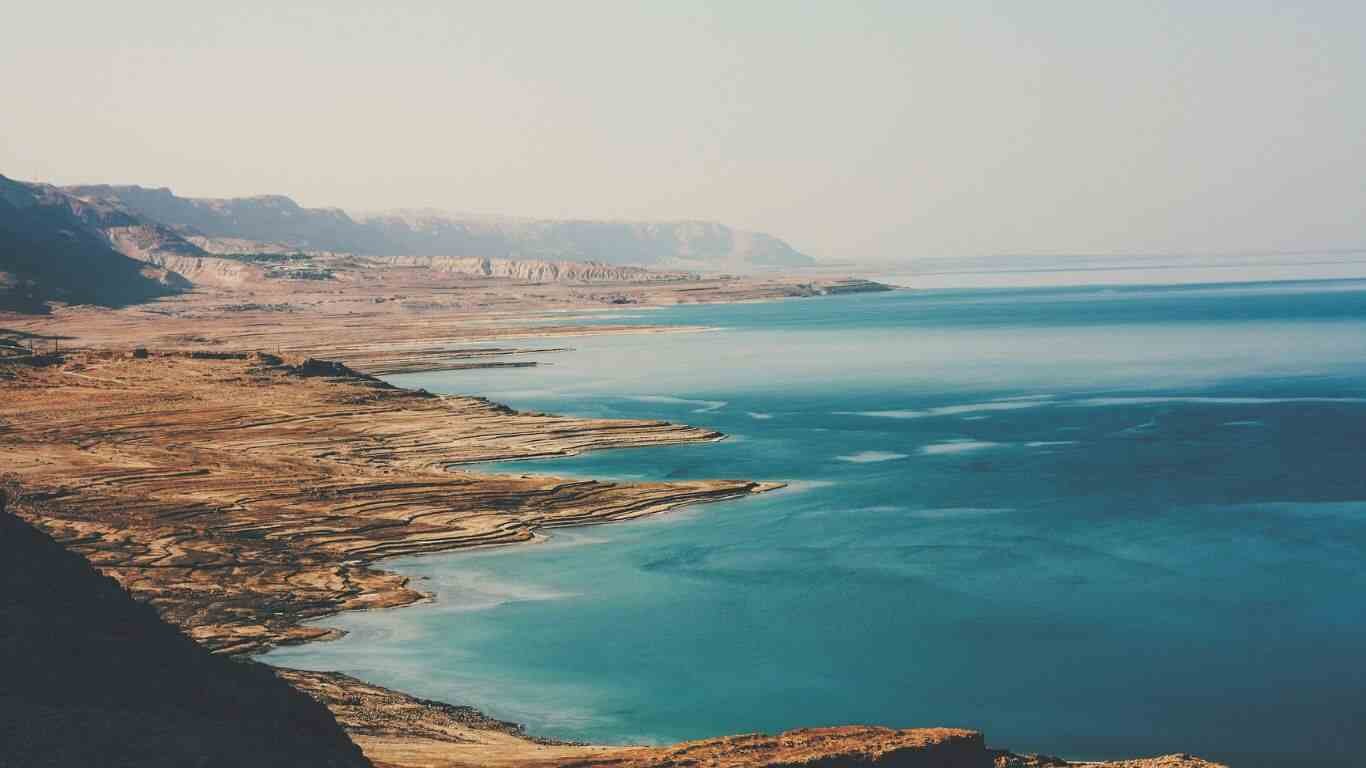
Table of Contents
ToggleIntroduction to the Dead Sea
The Dead Sea in Israel is a natural wonder known for its unique qualities and historical significance. This salt lake, located between Israel and Jordan, is one of the saltiest bodies of water in the world, making it a one-of-a-kind attraction. The Dead Sea in Israel is more than just a geographical wonder; it’s a site where history, health, and natural beauty come together. This article delves into the Dead Sea’s many elements, including its geographical uniqueness, cultural significance, and more.
The Unique Geography of the Dead Sea
The Dead Sea in Israel lies at the Earth’s lowest point on land, around 430 meters below sea level. This outstanding feature adds to the region’s distinct climate and environmental conditions. The sea is flanked by the breathtaking Judean Desert, whose dramatic views have attracted visitors for generations.
Composition of the Dead Sea
The water of the Dead Sea is roughly ten times saltier than typical seawater, resulting in buoyancy that allows individuals to float effortlessly. The high salt concentration results from quick evaporation, which leaves behind a thick mixture of salt and minerals. This distinctive mix has made the Dead Sea in Israel famous for its medicinal powers.
Local Culture and Cuisine Around the Dead Sea
The area around the Dead Sea in Israel is culturally and historically significant. The indigenous Bedouin tribes have lived in this area for generations, retaining a way of life that provides a look into old traditions.
Traditional cuisine
Visitors to the Dead Sea in Israel can eat authentic Middle Eastern cuisine. Falafel, hummus, and shakshuka are staples in the local cuisine. The use of fresh, local ingredients enhances the authenticity of the gastronomic experience. Exploring the food is as much a part of the journey as floating in the Dead Sea.
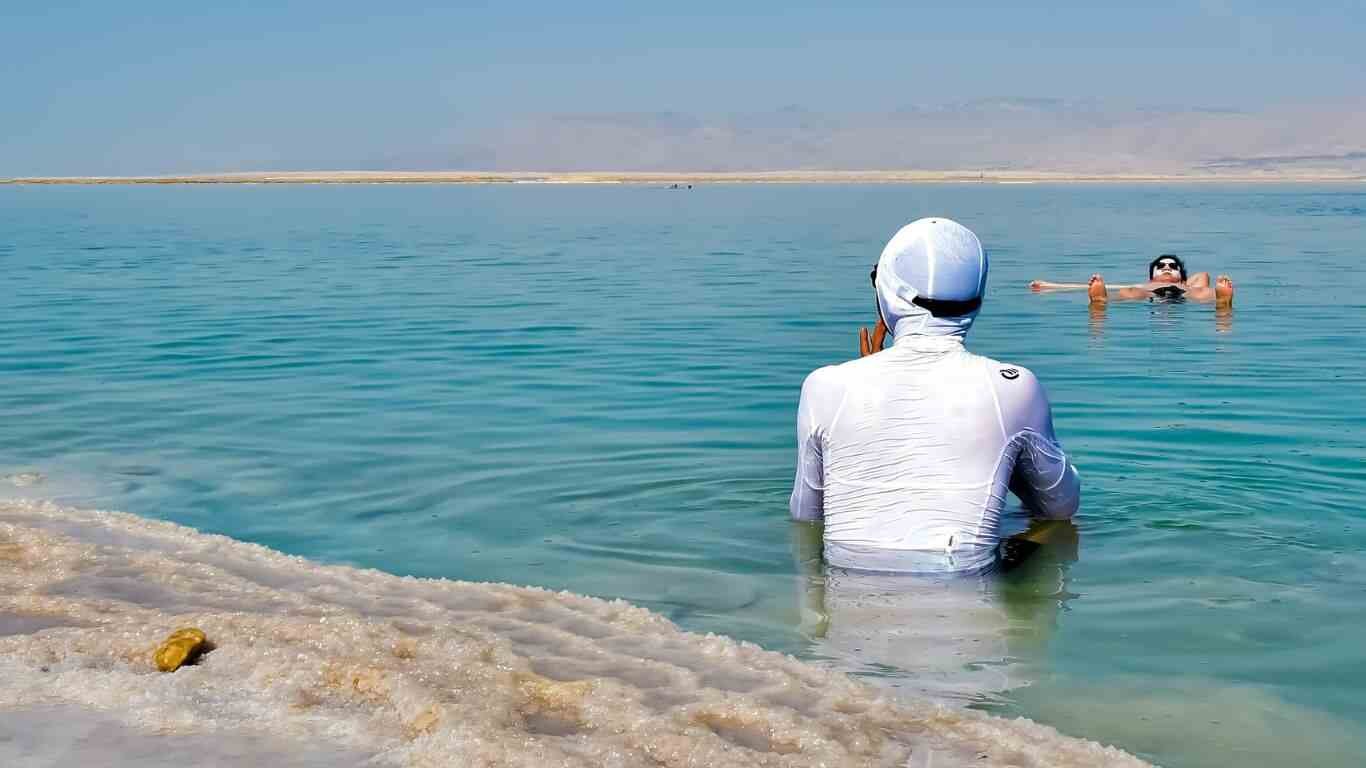
The Health Benefits of the Dead Sea Minerals
The Dead Sea in Israel is more than simply a natural wonder; it is also a health resort famous for its restorative capabilities. The mineral-rich waters and mud are utilized in a variety of therapies that have been shown to benefit skin issues and overall health. People suffering from eczema, psoriasis, and arthritis frequently find relief after visiting the Dead Sea, because of its unique mineral composition and high air pressure.
Skin Health and Healing
The Dead Sea in Israel contains high concentrations of minerals such as magnesium, calcium, and potassium, which have substantial skin advantages. These minerals aid to hydrate, reduce inflammation, and detoxify the skin. Many people take use of the natural mud present on the beaches, which is said to cleanse and rejuvenate the skin. Regular Dead Sea mud treatments have been proved to improve skin texture, decrease wrinkles, and even out skin tone.
Historical Significance
For millennia, the Dead Sea in Israel has been an important historical site. It appears in several ancient literature, including the Bible, where it is known as the “Salt Sea.” The region was home to various ancient civilizations, and its coastline is littered with archaeological sites. The Dead Sea’s historical significance in Israel goes beyond its presence in religious texts; it has served as a trading center, a source of rich minerals, and a site of sanctuary and contemplation for many cultures.
Essenes and Dead Sea Scrolls
The Dead Sea Scrolls are one of the most remarkable historical discovery made near the Dead Sea in Israel. These ancient texts, discovered in the Qumran Caves, provide invaluable insights into the religious practices of the Essenes, a Jewish group that flourished in the area some 2000 years ago. The scrolls contain some of the earliest known copies of the Hebrew Bible, making them an important source of information for scholars and historians.
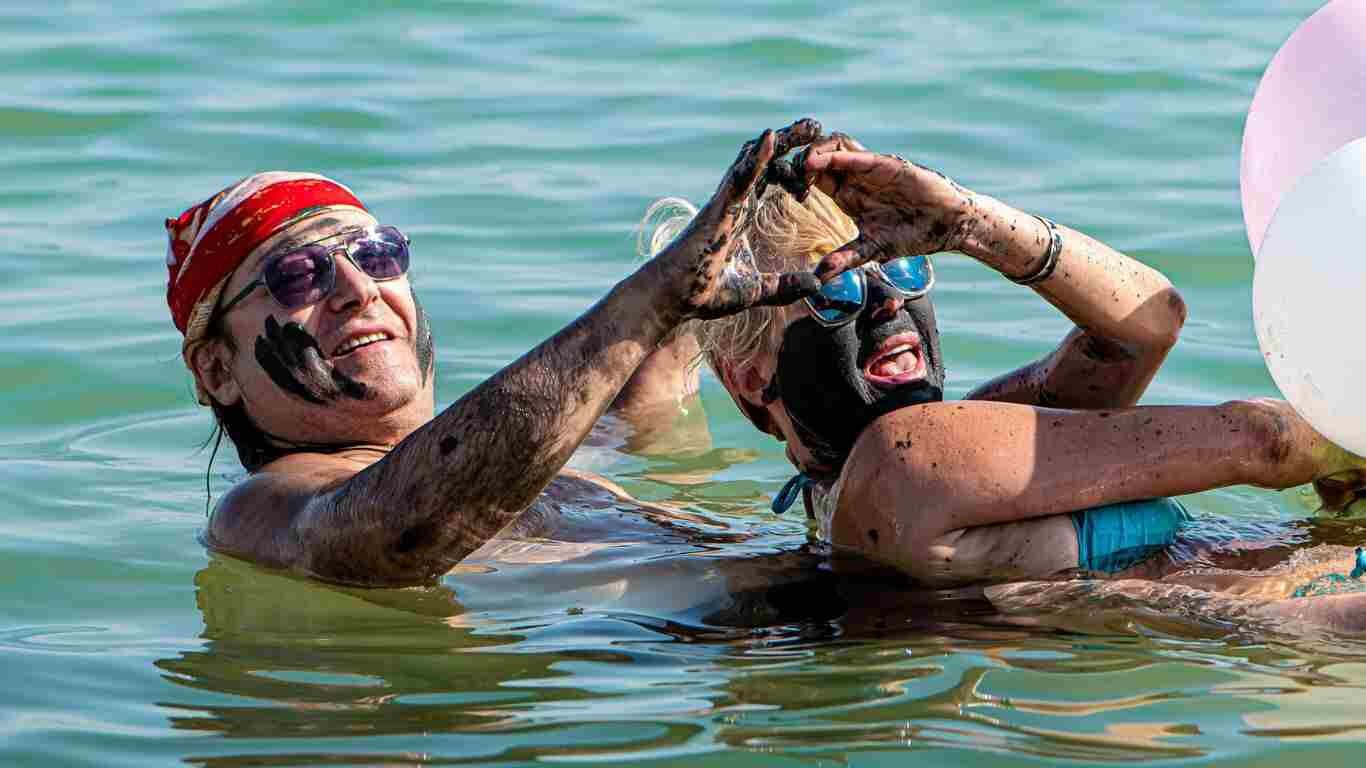
The Dead Sea's Role in Modern Skincare
The minerals present in Israel’s Dead Sea have been used by the beauty industry to make products with established medicinal advantages. From mud masks to bath salts, the Dead Sea’s natural elements have become essential components of modern cosmetics. Companies all around the world have recognized the benefits of these minerals, putting them into products that claim to renew and repair the skin.
Popular Products and their Benefits
Many renowned skincare firms incorporate components originating from the Dead Sea in Israel into their products. These goods are highly sought after due to their capacity to treat skin diseases such as psoriasis, eczema and acne. The mix of minerals soothes and repairs the skin, making these products extremely effective. The global appeal of Dead Sea-based skincare products reinforces the region’s position as a natural health and beauty hub.
Weather Information for the Dead Sea Region
The climate near the Dead Sea in Israel is distinguished by hot summers and mild winters. The region receives more than 300 days of sunshine every year, making it a perfect location for individuals seeking to escape colder regions. The steady sunshine and low humidity make for a nice setting for outdoor activities, such as floating in the Dead Sea or exploring the surrounding terrain.
Seasonal Considerations
Summer temperatures around the Dead Sea in Israel can reach above 40°C (104°F), while winter temperatures average around 20°C (68°F). The dry air and low humidity contribute to the region’s therapeutic atmosphere, making it a year-round destination. However, tourists should take care to avoid the severe heat during the peak summer months, such as staying hydrated and seeking shade during the warmest hours of the day.
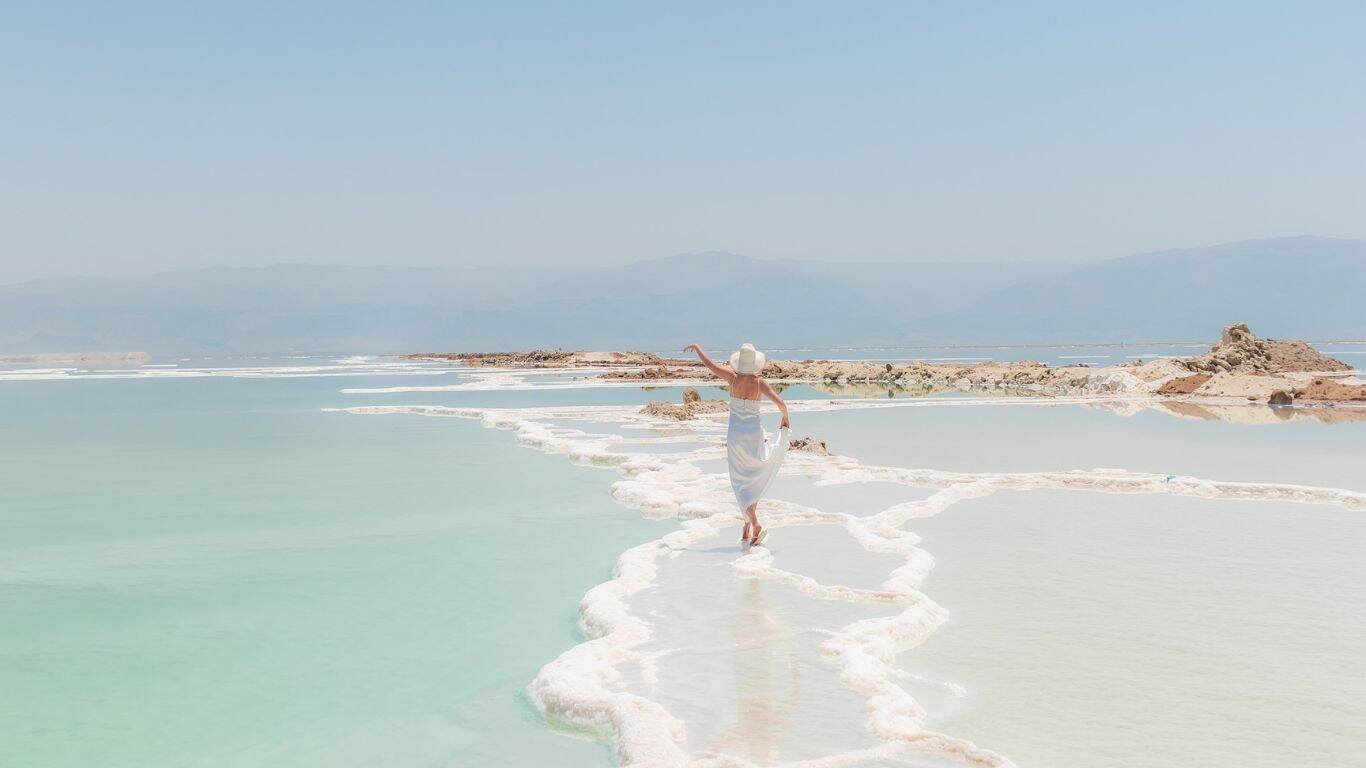
Tourist Attractions Around the Dead Sea
The Dead Sea in Israel is surrounded by various attractions that offer something for every traveler. From natural wonders to historical sites, the area is rich in experiences that enhance any visit to this unique region. Whether you’re interested in history, nature, or simply relaxation, the Dead Sea in Israel offers a wide range of activities and sights that make it a must-visit destination.
Masada National Park
Masada, a historic stronghold perched atop a plateau, is one of the most recognizable landmarks near the Dead Sea in Israel. This UNESCO World Heritage Site provides stunning views of the Dead Sea and surrounding desert. Masada’s historical significance, combined with its magnificent location, makes it a must-see. The castle is notable for the spectacular siege by the Romans in 73-74 CE, which resulted in the mass suicide of the Jewish defenders, making Masada a symbol of resistance and liberation.
Ein Gedi Nature Reserve
Another must-see in Israel near the Dead Sea is the Ein Gedi Nature Reserve, a desert oasis. This reserve is home to waterfalls, lush foliage, and a diverse range of species. It’s an ideal location for trekking and taking in the region’s natural beauties. Ein Gedi is also historically and culturally significant, with ancient remains and synagogues that reflect the tale of the people who formerly lived in this desert oasis.
Best Time to Visit the Dead Sea
Timing is essential when arranging a trip to the Dead Sea in Israel. The best time to visit is determined on the weather and activities you enjoy. Understanding the seasonal changes will help you make the most of your vacation, whether you want to enjoy the warm waters, tour the nearby attractions, or simply relax in the sun.
Ideal Seasons
The finest times to visit the Dead Sea in Israel are spring (March to May) and fall (September to November). During these months, temperatures are more pleasant, and the area is less congested. This makes it easy to enjoy outdoor activities and see the local sights. The warm weather during these months is ideal for trekking, sightseeing, and, of course, floating in the Dead Sea.
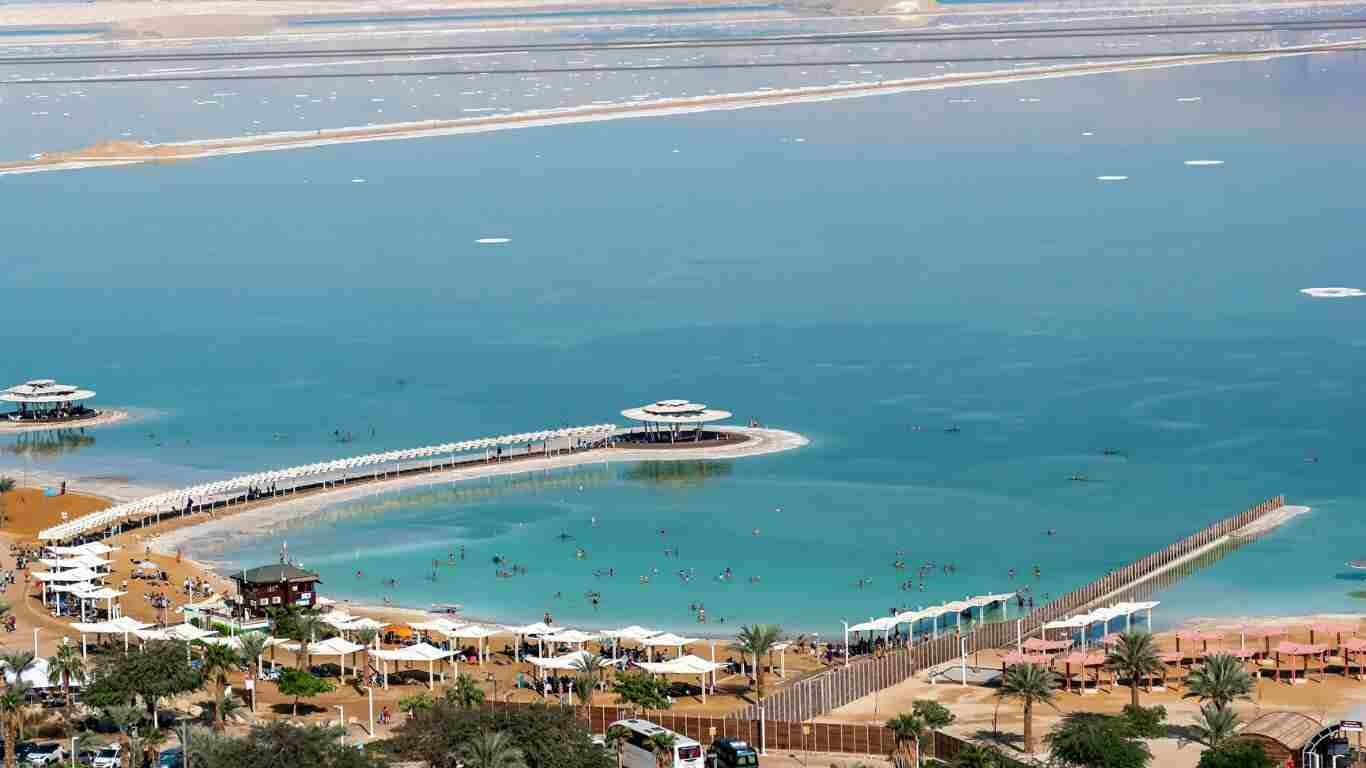
How to Get to the Dead Sea
Reaching the Dead Sea in Israel is quite simple, with various transportation alternatives available. Whether you prefer the freedom of driving, the ease of public transportation, or the comfort of an organized trip, getting to the Dead Sea is simple, enabling you to focus on the unforgettable experiences that await you.
By Car
Driving to the Dead Sea in Israel is a convenient option for travel. The journey from Jerusalem takes roughly an hour and a half, whereas the drive from Tel Aviv takes around two hours. The roads are in good condition, and the picturesque journey provides spectacular views of the desert countryside. Driving also allows you to explore the countryside at your own speed, with stops at various points of interest along the way.
Public Transportation
For those who prefer not to drive, buses travel on a regular basis from major towns such as Jerusalem and Tel Aviv to the Dead Sea in Israel. This alternative is less expensive and allows you to unwind while taking in the view. The buses are luxurious and well-equipped, making them popular among both locals and visitors.
Accommodation Options Near the Dead Sea
There are numerous hotel alternatives near the Dead Sea in Israel, catering to a variety of budgets and preferences. Whether you want a luxury spa experience, a family-friendly resort, or a low-cost vacation, the region has something for everyone.
Luxury Resorts
For a premium experience, some high-end resorts provide spa services that make the most of Israel’s natural resources, including the Dead Sea in Israel. These resorts offer world-class amenities, such as pools, private beaches, and wellness centers. Many of these resorts include treatments that include Dead Sea mud and salts, allowing guests to reap the region’s therapeutic benefits without leaving their accommodations.
Budget-Friendly Options
For individuals traveling on a tight budget, there are more economical options, such as guesthouses and hostels. These alternatives offer comfortable lodgings without breaking the wallet, allowing travelers to experience the Dead Sea in Israel without sacrificing quality. Many low-cost accommodations provide basic but clean rooms, courteous service, and handy positions near the shore.
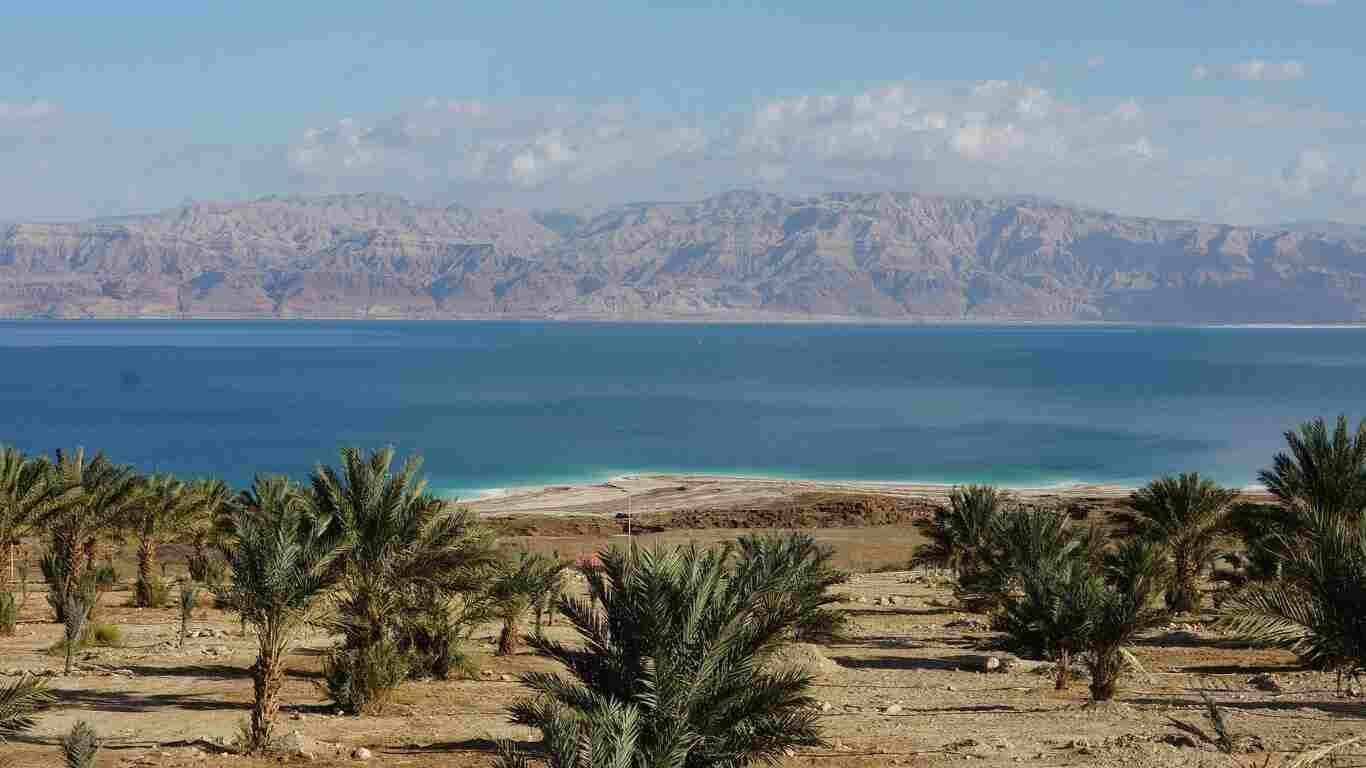
Safety Tips for Visiting the Dead Sea
While the Dead Sea in Israel is a safe site, travelers should take some precautions to have a positive experience. Understanding the Dead Sea’s unique conditions and planning accordingly will help you get the most out of your stay, allowing you to relax and enjoy the sea’s curative waters and stunning surroundings.
Floating Safety
The buoyancy of the Dead Sea in Israel allows you to float easily, but be careful not to get water in your eyes or mouth due to its high salt content. If you have any cuts or open wounds, they may sting when in touch with the water, so protect them before entering. The Dead Sea’s unusual qualities also mean that you should avoid splashing or diving, as the dense, salty water can irritate your eyes or nose.
Sun Protection
The sun’s rays are powerful near the Dead Sea in Israel, thus sunscreen and protective gear are needed. Staying hydrated is also critical, particularly during the hotter months. The region’s peculiar environment, along with the Dead Sea’s reflective surface, can magnify the intensity of the sun’s rays, thus taking precautions is essential.
Conclusion: Why the Dead Sea Should Be on Your Travel List
The Dead Sea in Israel is more than a tourist destination; it’s an experience that mixes natural beauty, history, and wellbeing. From its distinctive geology and health benefits to its rich cultural past, the Dead Sea has something for every traveler. The Dead Sea in Israel is a must-visit destination, whether you’re lounging in its mineral-rich waters, seeing ancient ruins, or indulging in local cuisine. Its unique blend of history, health, and natural beauty makes it a must-see destination for anybody looking for an amazing journey.
